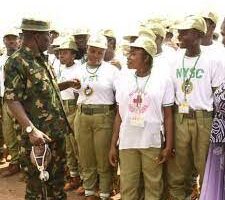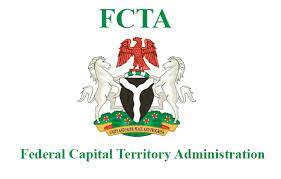Of recent, there is an upsurge in the number of media organizations in Nigeria, but unfortunately the vast power the conventional media had enjoyed when gate-keeping was at its prime is being grossly debased. This is partly due to its self-harming porous border and in a part because the media have failed in its primary responsibility of informing, educating and guiding the public.
The gatekeepers of those days would triumphantly remember what Dan Agbese called “the golden age of analogue newspaper tradition” as one would sing a dirge. The hard-worn image the profession had earned is shriveling up due to lack of training, sincerity of purpose and diligence.
In those days, newspapers were passionately concerned about their reputation and integrity and they could kill or bury a story to guard both if the story was not in the overall interest of the public; this is what called developmental journalism in essence. Now the noble tradition is being gradually and steadily eliminated.
Many respectful columnists have come up with interventions to analyze and proffer solutions to the existential challenges threatening the media in the 21st century especially in Nigeria. Chief among them are Mohammed Adamu’s two-part “Now that everyone is a journalist”, Aishatu Haruna’s “A wake-up call for journalists”, and Dan Agbese’s “Mourning the Death of Analogue Newspaper Tradition”.
The three educative columns, although they differ in their approach and provision, share one thing in common: the media are in the mess they are today largely because those guiding principles of practice called ethics have been thrown to the dog leading one to ask: Who watches the watchdog?
Sadly, even renowned columnists today sit in a corner and concoct stories. They don’t care what happens thereafter. The idea of doing spade work to gather data and verify information is fading away. Many media organizations have fake news and misinformation as their hallmark and painfully they relish in these unethical practices with serious danger to the society.
The almighty coronavirus came rampaging many states in Nigeria at a time when many media organizations are neck-deep in the messy water of unprofessionalism, professional misconducts, fake news, misinformation and the border of “journalism” as a whole is wide open. These and so many other misconducts have been undermining the profession.
Since reporting is a must and the media have continued to be chased away by serious challenges in the face of COVID-19, there comes another question: Which way will journalism tread in the time of Coronavirus and thereafter?
Because Nigeria has a deficit in the number of journalists trained in health journalism, health issues per se are very complex and covering the pandemic also poses exceptional safety challenges to the professional media workers and health issues are given little attention by the media, never have the media, or better still journalists, been so exposed to danger than in the time of COVID-19 pandemic.
This is the lacuna the PR Nigeria Centre for Public Relations and Investigative Journalism has discovered and sworn to fill. The idea was soon followed up with a workshop and I am one of the privileged journalists invited to the workshop.
On July 7, 2020, the centre, in collaboration with Adamu Abubakar Gwarzo Foundation, organized a workshop that sought to build the capacity of practicing journalists across media organizations with the necessary skills for understanding and adapting to issues of ethical concern while reporting the coronavirus pandemic.
The workshop drew its resource persons from some of the biggest guns in the industry; namely, Professor Faruk Jibril, Dr Sule Ya’u Sule (both of the Department of Mass Communications, Bayero University, Kano), Abdulaziz Abdulaziz, a journalist with the Premium Times and Salisu Na’inna Dambatta (who moderated the three papers and on whom I have chosen to make the argument he had raised a topic for another day).
“Sick and dead journalists cannot cover an event, let alone report it ethically or professionally,” began a paper entitled “Ethical Issues in Covering COVID-19 pandemic: A Health Journalism Perspective”, Professor Umar Faruk Jibril presented.
The paper focused on the interrelationship between journalists and ethics (“codes of moral [or principles] that journalists are supposed to uphold) and between journalism and health issues.
According to the don, since the first ethical consideration in reporting health emergencies like COVID-19 is the physical and personal safety first and since the government or media organizations are so reluctant to provide journalists with personal protective equipment, “safety first and facts later” should be “the guiding principle of all ethics-driven and professionally guided reporting of a health pandemic”.
Accordingly, since the media as a public watchdog have the crucial role to inform and educate the public during health emergency situations like Covid-19, and “unveiling the truth for public good and safety is the cornerstone of ethically sound and responsible health journalism and the practice requires good understanding of the general journalistic ethics and sound public health practices”, there is the urgent need for the media to invest in health journalism.
However, the COVID-19 pandemic has rattled scientists, overwhelmed health workers globally and has a stranglehold on the world economy. If that is the case “How then can we (media practitioner) communicate effectively to combat the pandemic?” Dr Sule Ya’u Sule’s paper “Crisis Communication for COVID-19”provides an answer to this question.
The solution, said Dr Sule, is in an effective crisis communication. First a media practitioner should know that crisis is inevitable and in the face of the pandemic communication is invaluable.
What made the don’s paper spectacular was his ability to draw inferences from happenings in the past and the present to drive his argument home ranging from the media interest, romour mills and how best to counter them; the proactiveness needed of a practitioner and the best course of action at the time of crisis which includes being forthcoming and honest.
In short, the argument Dr Sule had raised is this: Nigeria’s public sphere was awash with rumours, misinformation and fake news resulting in wholesale misgivings about the COVID-19 pandemic, which caused a serious damage to the fight against the disease; and many state governments stumbled at the inception of the virus for one reason or the other. Government at all levels had failed to deploy “effective crisis communication” to the extent that the citizens were left to their own devices. Simply put, consummate skills in crisis communication would have mitigated both the misgivings and damage.
Abdulaziz Abdulaziz’s paper “Ethics in Investigative Journalism” dwelt on, what is investigative journalism and what is not, why investigative journalism matters and how journalists can successfully navigate the ocean of investigative journalism with the help of journalistic tools and ethics as a life jacket.
One, it is true democracy in Nigeria is in a great danger as the government at different levels has failed in its primary responsibility of protecting lives and property and many government officials have been caught pants down raping the country’s treasury. This is more so as COVID-19 pandemic took the lid off of our decaying healthcare system.
Two, concurrently “the media are the appointed empire of democratic ethos”, as Abdulaziz said, and they are expected to work in accordance with the codes of conduct of journalistic practice.
In sum, journalists are also frontline workers in the fight against COVID-19, facing multiple perils to keep the public informed on the issue. What they need at the moment is a series of training on personal safety and improved coverage; and most importantly media proprietors must take the issue of welfare and safety of journalists seriously by providing them with personal protective equipment (PPEs).
Abdulhamid wrote via [email protected]



